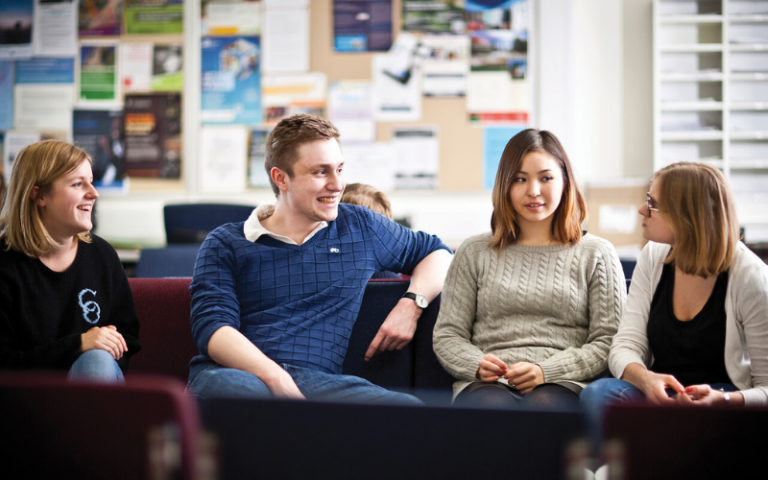Behind the scenes in Disability, Mental Health and Wellbeing
28 October 2021
UCL's Disability, Mental Health and Wellbeing (DMHW) team support students at UCL, whether they are undergraduate or postgraduate, from the UK or from abroad. Read on to find out what goes on behind the scenes with DMHW Administrator Joanna Hooper.

I have been the administrator for the team for many years – best not to ask how many! My role involves answering enquiries about the service, signposting to resources and booking appointments with our advisers when students need individual casework. It really helps us if you have your UCL student ID number ready when you phone us, so that we can find your details quickly. Your student ID number can be found on the front of your UCL student ID card or on any correspondence from Admissions, such as an offer letter.
You would be surprised by the amount of ‘behind the scenes’ administrative tasks there are in our service. The Disabled Students’ Allowances generate masses of work for us, and we liaise with lots of external agencies to provide specialist support for our students, such as British Sign Language interpreters, remote captioning, and 1:1 mentoring. I normally process over 100 invoices every month!
I also oversee the Specific Learning Differences screening and assessment process, which involves tracking the screening questionnaires as they are issued and returned, and ensuring they are followed up appropriately. This keeps me very busy, especially at the start of term, when lots of new students join UCL who have had informal support at school (sometimes through a ‘Form 8’), but have never been through the full diagnostic assessment which is needed to access reasonable adjustments at university level. We also get requests for screening from students who have been at UCL for several years, at every level up to doctoral study. You can never predict when a student will reach the point where their usual coping strategies just aren’t working any longer and they realise that they need more help.
If you had support at school for things like, ‘slow’ information processing, ‘poor’ working memory or ‘slow’ writing speed, then it’s really important to send us your documentation as soon as possible, so that we can advise you on whether you need a screening. The process of screening and assessment usually takes at least 6-8 weeks, so please leave enough time for us to put support in place for you, particularly if you think you will need extra time for examinations.
We often get phone calls and queries from students who are uncertain what Disability, Mental Health and Wellbeing offer as a service. It is well worth taking some time to look at the UCL website and the FAQs on askUCL to get a feel for the remit of different teams. UCL is a very large organisation, and can feel difficult to navigate at times. The good news is that there is lot of support available to you, and lots of staff with different specialisms who can help. The simplest way I use to describe it is that Disability, Mental Health and Wellbeing focus on how your physical and mental health impact on your studies. Our advisers will look at your individual situation and offer information, practical support and guidance to remove any barriers, empower you to learn independently and fully engage with your studies. There are other teams within UCL who can help you if you are interested in accessing other forms of support, such as therapeutic counselling, careers guidance or financial assistance.
The start of a new academic year can be a stressful time for parents and guardians of students too! It’s a big transition for them as well as you, and it’s only natural that sometimes they might worry about how you are settling in. There is some very helpful guidance on the website which explains the boundaries we operate within, to preserve your privacy and confidentiality. We would always prefer to speak directly to you if you are having any difficulties, and if you need some encouragement and moral support to reach out to any service at UCL, then of course you can have a friend or a family member there with you when you make the call.
If you are living in a UCL-run halls of residence then remember your Student Residence Advisers are there to help you if you are feeling a bit home-sick, or need some help finding your feet and making new friends. The SSW Student Advisers work with first year undergraduates and are a really good source of help with general wellbeing issues; and because they are based within your specific academic department, they will have insider knowledge about the organisation and nuances of your course.
The last year and a half have been challenging for all of us, and we’ve seen a lot of change at UCL while we try to adapt to the new post-Covid world. As students, you are in the best position to tell us what is working well and where we could do better, so please do take all the opportunities offered to give us your feedback. Listening to you is the most important part of our role!
Joanna Hooper, Administrator, Disability, Mental Health and Wellbeing
 Close
Close

